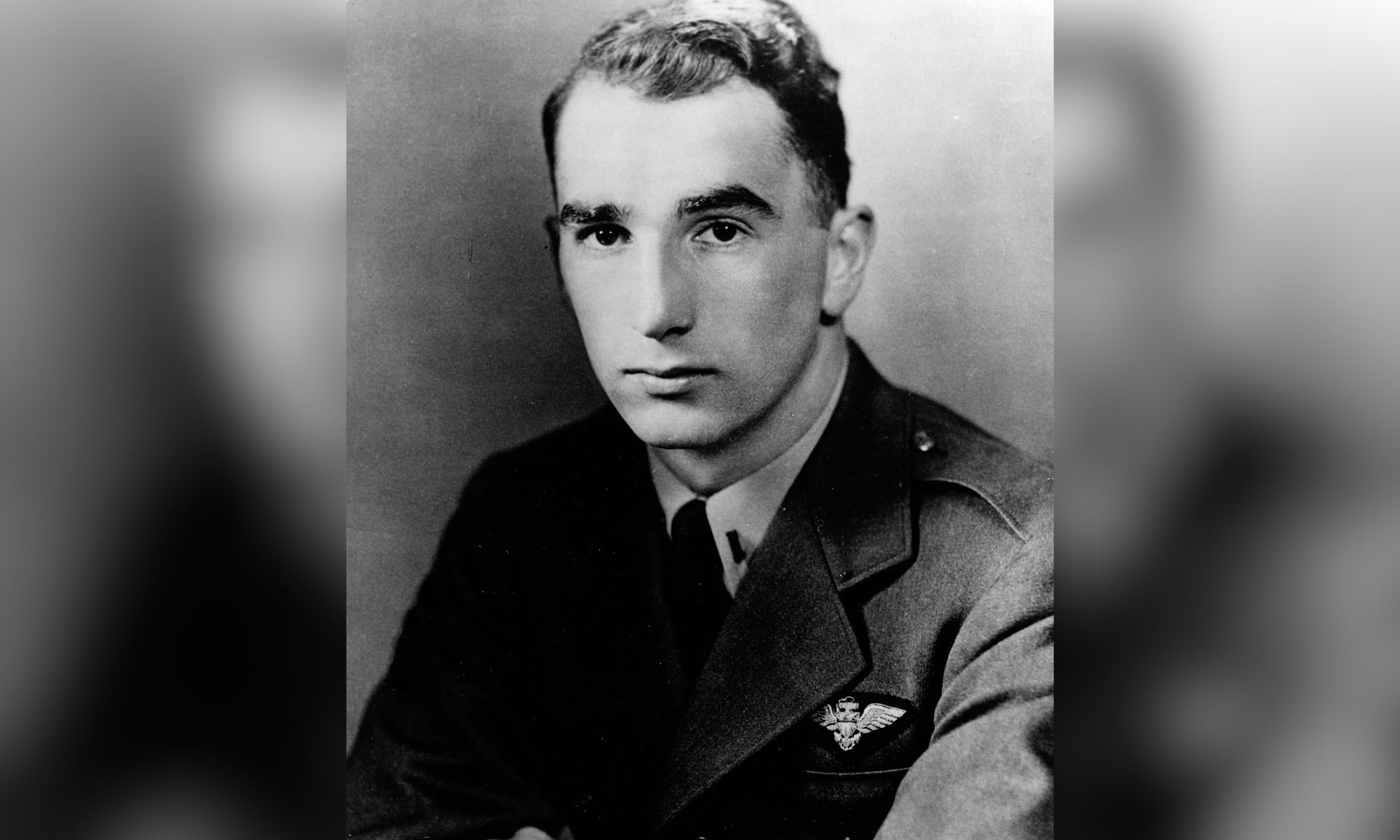During the Korean War, Lt. j.g. John Koelsch, equipped with a promising new helicopter, dedicated his service to rescuing downed pilots. Koelsch’s most notable sortie ultimately cost him his life, but through his actions, the pilot he risked his life to save survived.
Koelsch was born on Dec. 22, 1923, in Chelsea, England, where his father worked as an international banker in London. In 1924, Koelsch and his parents returned to New York and settled in Briarcliff Manor in 1928.
After enrolling at Princeton University in September 1941, Koelsch enlisted in the U.S. Navy Reserve on Sept. 14, 1942, and qualified as an airman with an ensign’s commission on Oct. 16, 1944.
Koelsch served as a torpedo bomber pilot in the last months of World War II and was promoted to lieutenant junior grade on Aug. 1, 1946. He then returned to Princeton to complete his education in 1949.
Up until then, Koelsch had envisioned a career in law, but when North Korea invaded South Korea on June 25, 1950, he transferred to the regular Navy. After training in the new Sikorsky HO3S-1 helicopter, he was assigned in August 1950 to naval utility squadron UH-1 at Naval Air Station Miramar, California, and from there to the aircraft carrier Princeton off the Korean coast.
When Koelsch’s unit completed its tour of duty, he asked to remain for another one, declaring that rescuing downed pilots as his mission. He then joined UH-2, which operated from Q-009, the former landing ship tank LST-488 converted to a helicopter support ship.
“He was always ready for any rescue mission, no matter how dangerous, and he let this be known,” a fellow officer said. “If anything happened, he wanted to be a part of it.”
During his time on helicopters, Koelsch designed a device to expedite recovering downed airmen from freezing winter conditions. He got a chance to use his “horse collar” floating sling hoist on June 22, 1951, when he and Aviation Machinist’s Mate 3rd Class George Neal rescued Ensign Marvin Nelson Jr. from Wonsan harbor after North Korean antiaircraft fire forced him to bail out of his Vought F4U-5 fighter.
On July 3, Q-009 got a report that Capt. James Wilkins of a Marine fighter squadron went missing while on a four-plane armed reconnaissance mission. Wilkins’ F4U-4B fighter was hit by North Korean antiaircraft fire, forcing him to bail out over the coast.
It was late, and darkness would soon be falling over what were already overcast conditions, but without hesitation, Koelsch and Neal set out in their helicopter, determined to find and recover the lost Marine.
In spite of the poor visibility and at least one enemy hit to their helo, Koelsch and Neal located Wilkins, severely burned and with a twisted knee, near Yondong in what the latter later called “the greatest display of guts I’ve ever seen.”
The terrain was too mountainous for a landing. Using his “horse collar” to hoist up Wilkins, Koelsch was hovering over Wilkins when his helicopter was struck several more times and crashed into a mountain.
Carrying Wilkins, Koelsch and Neal managed to evade enemy forces for nine days before they were captured at a coastal village. As they were being marched through town, Koelsch communicated with one of their captors, pointing out Wilson’s injuries and convincing him to separate Wilson from the trio for medical treatment.
Koelsch’s treatment, however, would be different. He succumbed to dysentery and malnutrition on Oct. 16, 1951.
But the airman Koelsch had died trying to save ultimately survived to make it home. Wilkins and Neal were subsequently awarded the Prisoner of War Medal after they were released. Neal also received the Navy Cross for his actions in rescuing Wilkins.
Wilkins and Neal testified, alongside other American prisoners, to Koelsch’s consideration and helpfulness toward his fellow prisoners of war. Koelsch was noted as uncooperative while under North Korean interrogation, even while his health was deteriorating under isolation and torture.
On Aug. 3, 1955, Koelsch’s mother received her son’s posthumous Medal of Honor — the first awarded to a helicopter pilot.
Koelsch was interred in Arlington National Cemetery. In 1955, the Navy christened the destroyer escort Koelsch in his honor.




